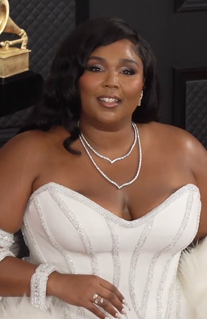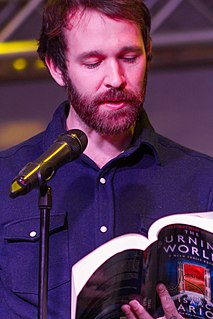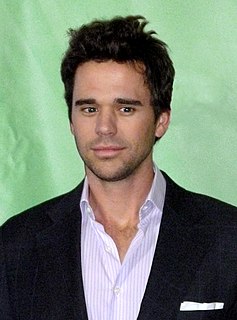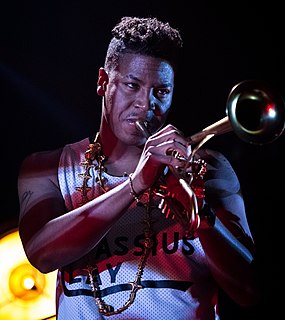A Quote by Julien Baker
The thing that is comforting about being a touring musician is whenever I say bye to my friends, I'm like, 'I don't know when I'll see you again but it'll be sooner than I think and if it's not soon then it won't matter.'
Related Quotes
Being on the road, because you do so much waiting and so much traveling. It's not the same thing as being in the same city for a week or two weeks and then another city. It's really hard. I don't think people understand this about being a touring musician, or a touring actor, or somebody who flies everywhere for business. It's incredibly disorienting.
So if you can make it through, you know you've got something good, you can handle anything. We've been blessed to grow but at the same time, the hard part is having to wear every single hat. It's exhausting, but it's entirely worth it because on the flip side, the best part about being a touring musician is being a touring musician.
Once I started working as a professional actor, it was like, 'Bye-bye waiting tables, bye-bye bartending, bye-bye all the cliched jobs actors do.' But after a year of not getting work, there's this really difficult conflict, like, 'Do I have to go back to being a waiter when people recognize me from a show?'
Times have changed since a certain author was executed for murdering his publisher. They say that when the author was on the scaffold he said good-bye to the minister and to the reporters, and then he saw some publishers sitting in the front row below, and to them he did not say good-bye. He said instead, "I'll see you again."
It makes me think about how you hear these young people say, "I see you, man." Or even if you go and watch some basketball game over the summer and the announcer goes, "I see you," and you see that player smile. You know what I mean? That thing of just being recognized, especially when you do a little subtle thing. I don't know.
Whether or not belive in Fate comes down to one thing: who you blame when something goes wrong. Do you think it's your fault - that if you'd tried better, worked harder, it wouldn't have happened? Or do you just chalk it up to circumstance? I know poeple who'll hear about the people who died, and will say that it was God's will. I know people who'll say it was bad luck. And then there's my personal favorite: They were just in the wrong place at hte wrong time. Then again, you could say the same thing about me, couldn't you?
What we're doing now, is to try to eradicate the limited notion of how people are interacting with each other through hyper-racialized ideas. A lot of it deal with, as an example, genre. If I ask you to visualize a trap musician or a hip-hop musician, you'll see one thing. If I say visualize a western classical musician, you'll see a very different thing. A lot of how music is disseminated to us is hyper-racialized. It's not something that we think about all the time, but if you take a minute to look back, it's why you get this argument when there's a white rapper.

































